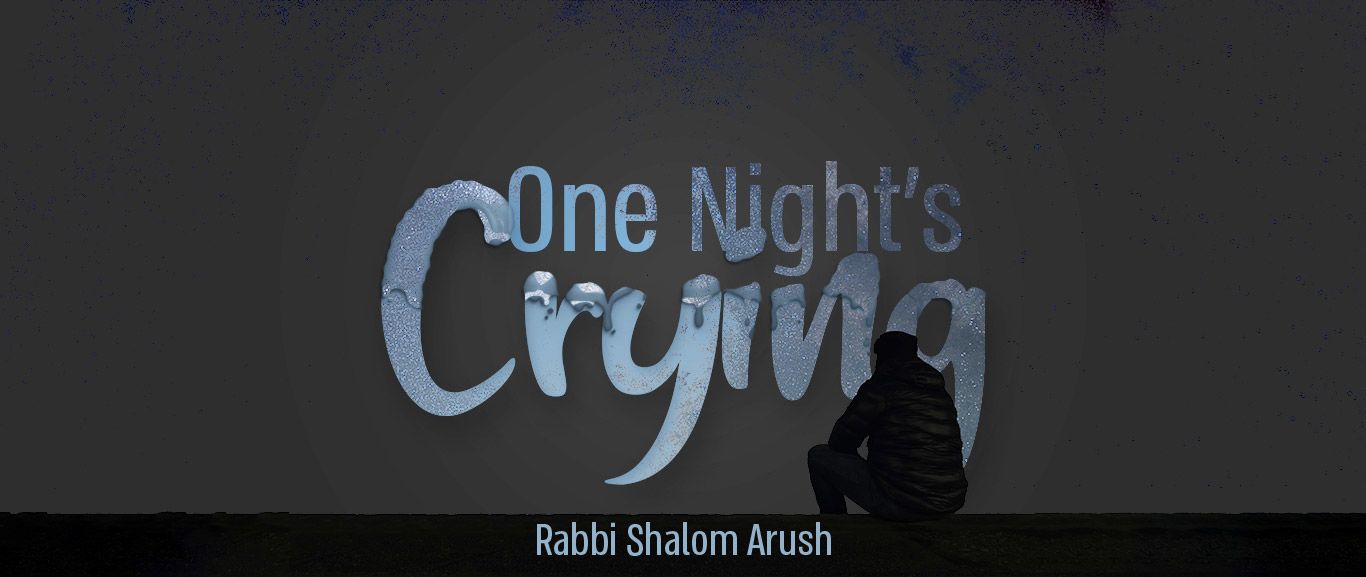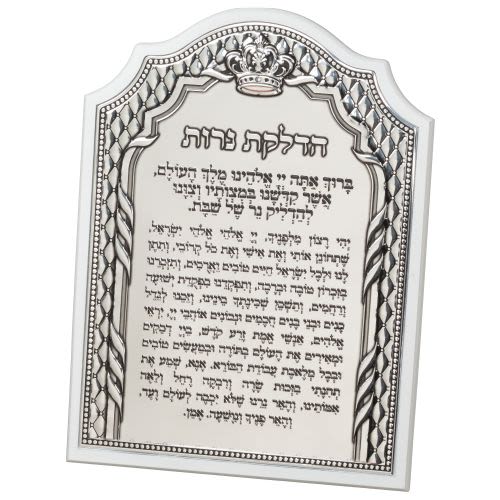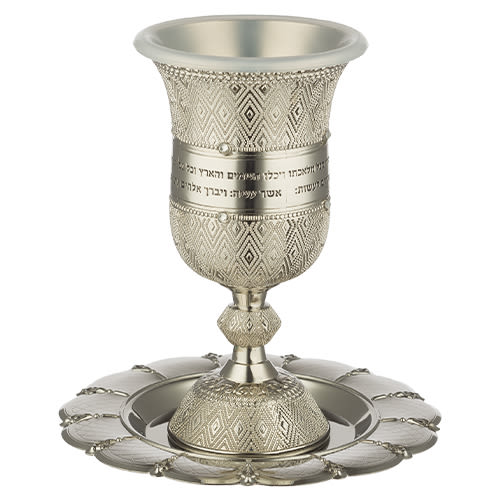
One Night’s Crying
One night’s crying (that happened to be on the 9th day of Av, what’s known in Hebrew as Tisha B’av) made this night will be a night of crying for posterity…

Translated by Rabbi Lazer Brody
In Forest Fields, Part 42
Giving thanks is our main purpose in this world and in the world to come, for it brings us to true emuna, brings us close to Hashem, and mitigates severe judgments. What’s more, giving thanks hastens the Geula, the full redemption of our people.
A main tenet in our faith, as mentioned earlier, requires a person to thank Hashem for the seemingly bad as well as for the good. For example, a person must thank Hashem if he doesn’t feel well or if he fails to close an important and potentially lucrative deal. Why? Ultimately, all the trials and tribulations of this world are actually enormously beneficial to the soul in the long run. Rebbe Nachman of Breslev teaches that if a person looks at the spiritual value of his suffering – its ability to atone for wrongdoing, its power to cleanse a soul, its intent of stimulating a person to do teshuva and to seek Hashem, and its value in strengthening a person’s character – his heart fills with joy, for truly, there is nothing bad, and everything is good (Likutei Moharan I:65).
With the above teaching in mind, we can truly thank Hashem for life’s setbacks, shortcomings, and tribulations, for everything is certainly for the very best. When we truly realize that the essence of the seemingly bad is to draw us closer to Hashem, our hearts fill with joy and the gates of prayer open wide for us.
The good measure – all the more so
To understand just how powerful expressions of gratitude are, let’s examine the opposite – complaining for no reason. A person’s lack of content in life – the shortcoming of most people – is the principle manifestation of heresy. As such, nothing so terribly separates a person from Hashem and invokes stern judgments as complaints and malcontent. Even worse, they prolong the exile and delay the full redemption of our people.
 We learn how dangerous complaining is from the sin of the spies who slandered the land of Israel and thereby weakened the people’s resolve to fulfill Hashem’s commandment to enter the Land (see Numbers, Chapters 13-14). The People of Israel cried and complained a whole night for no reason. Their blasphemy against Hashem was terrible, for they said (see Deuteronomy 1:27) that Hashem took them out of Egypt because He hates them, G-d forbid, and wants to deliver them into the hand of the Amorites in Canaan.
We learn how dangerous complaining is from the sin of the spies who slandered the land of Israel and thereby weakened the people’s resolve to fulfill Hashem’s commandment to enter the Land (see Numbers, Chapters 13-14). The People of Israel cried and complained a whole night for no reason. Their blasphemy against Hashem was terrible, for they said (see Deuteronomy 1:27) that Hashem took them out of Egypt because He hates them, G-d forbid, and wants to deliver them into the hand of the Amorites in Canaan.The Midrash and the Gemara both tell us that because of one night’s crying (that happened to be on the 9th day of Av, what’s known in Hebrew as Tisha B’av), this night will be a night of crying for posterity. From this decree came the destruction of both Holy Temples, the Spanish Inquisition, and the exile of our people to this very day. Not only that, but the entire generation was killed off and not allowed to enter the Land of Israel except for Yehoshua Bin Nun and Calev ben Yephune, the two spies who spoke favorably about Hashem and the Land of Israel.
One is dumbstruck: Why does Hashem punish the Children of Israel for posterity because of one night’s crying? They didn’t commit idolatry, spill a fellow man’s blood, or engage in debauchery, the three worst sins in the Torah. They simply cried and complained for a night. Let’s give them a break – the spies frightened them. Or, maybe they were just weary from traveling in the desert. Why were they punished so severely?
We learn here that crying and complaining that stems from a lack of emuna is by far the most heinous transgression in the Torah!
A principle of Torah states that the reward for a good deed is five-hundred times greater than the punishment for an equivalent misdeed. Therefore, if crying and complaining have the power of invoking the most severe judgments in the Torah, then expressing our gratitude to Hashem mitigates those very same severe judgments 500 times over and invoke limitless blessings.
On a practical level, if a person is undergoing harsh trials and tribulations, the very best thing he can do for himself is to begin thanking Hashem, and thanking, and thanking…
The best advice is to thank Hashem for the severe tribulation itself! An expression of gratitude is the greatest statement of emuna there can be. It shows that a person recognizes that everything comes from Hashem, Who does everything for one’s ultimate good, including the current trials and tribulations. Since the tribulation is from Hashem, it’s obviously for one’s own benefit and therefore worthy of one’s gratitude to Hashem. Hashem knows just how vital life’s difficulties are for each person’s individual soul correction. Therefore, complaining about those difficulties indicates a lack of emuna. Constant expressions of gratitude are therefore vital for a person’s spiritual growth.
No troubles and no exile
Gratitude is the most important element of personal prayer. Gratitude determines the quality of a person’s entire connection with Hashem as well as the quality of one’s personal prayers. Consequently, many obstacles try to obstruct our expressions of gratitude. It seems so much easier – and more natural – to complain and cry about our deficiencies and to ask Hashem to provide us with whatever we lack.
Most people are unaware that gratitude more than anything else invokes Divine abundance. One should therefore begin every hitbodedut session with expressions of gratitude, beginning with the fixed blessings in our lives (those that don’t change from day to day) such as our parents, our spouses, and our children. Take nothing for granted and don’t forget to thank Hashem for our lungs and for the air we breathe. Afterward, we can thank Hashem for the particular blessings in the last 24 hours.
To be continued.














6/28/2010
Fantastic Article! Wow!
I think i just realized, because of this article, why I have been so unhappy.
Yes, I may have been thru alot of adversities and trials in life…. I just need to turn to HaShem wholeheartedly and – Thank Him – for even the bad in my life.
HaShem has been there so many times in my life – It is just that i totally forget at times all the good He has done for me and even if i’m going thru a hard time rignt now in life – As long as I am grateful to Him – Things will turn around forthe best
6/28/2010
Wow!
I think i just realized, because of this article, why I have been so unhappy.
Yes, I may have been thru alot of adversities and trials in life…. I just need to turn to HaShem wholeheartedly and – Thank Him – for even the bad in my life.
HaShem has been there so many times in my life – It is just that i totally forget at times all the good He has done for me and even if i’m going thru a hard time rignt now in life – As long as I am grateful to Him – Things will turn around forthe best